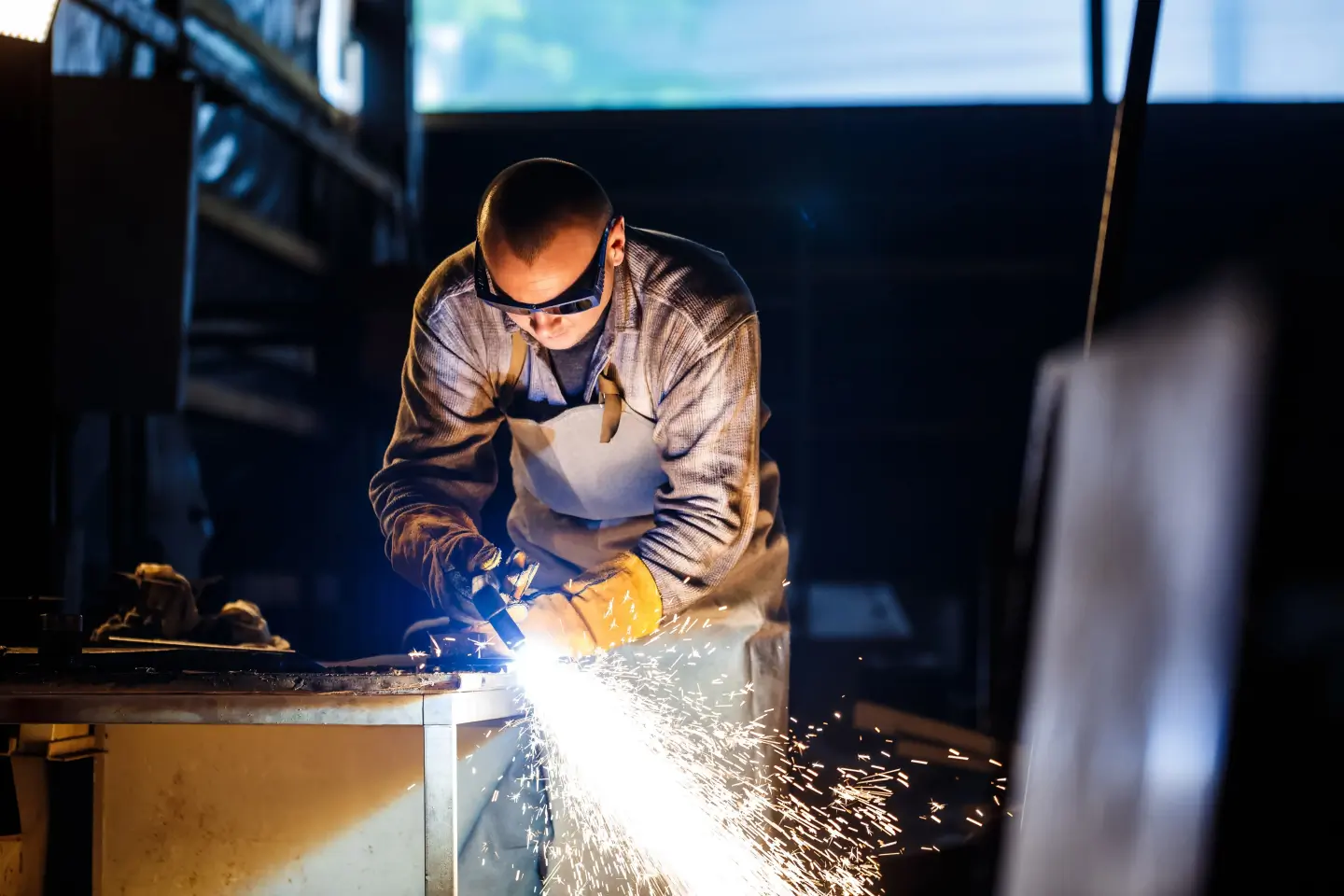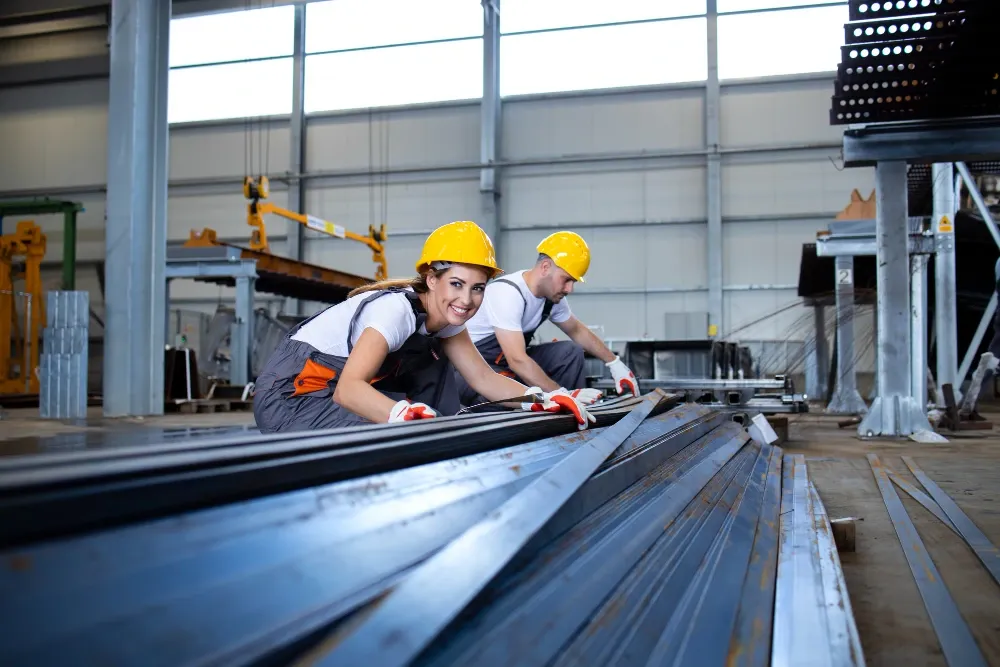Structural Steel Fabrication Guide: What Construction Pros Need to Know
Structural steel fabrication forms the backbone of modern construction, transforming raw steel materials into precisely engineered components that create the framework for buildings, bridges, and industrial facilities. As construction demands continue to evolve, understanding the intricacies of structural steel fabrication has become crucial for contractors, developers, and architects seeking efficient, cost-effective building solutions.

What is Structural Steel Fabrication?
Structural steel fabrication is a comprehensive manufacturing process that converts raw steel materials into finished structural components ready for construction assembly. This process involves cutting, shaping, welding, and finishing steel sections to exact specifications, ensuring each piece fits perfectly within the overall structural design.
The fabrication process transforms basic steel materials like I-beams, channels, angles, and plates into complex structural elements including columns, beams, trusses, and connection hardware. Professional structural steel fabrication ensures precision, quality, and compliance with industry standards while optimizing material usage and construction timelines.
Essential Materials in Structural Steel Fabrication
Understanding material selection is fundamental to successful structural steel fabrication projects. Two primary steel types dominate the fabrication industry:
Mild Steel represents the most cost-effective option for structural steel fabrication. Its excellent weldability, durability, and availability make it the go-to choice for most construction applications. Mild steel's properties allow for precise cutting, forming, and joining during the fabrication process.
EN8 Medium Carbon Steel offers superior tensile strength and toughness compared to mild steel. With higher carbon content, EN8 provides better elongation properties, making it ideal for specialized applications like anchor bolts and high-stress structural components requiring enhanced performance characteristics.
The 10-Step Structural Steel Fabrication Process
1. Surface Preparation and Cleaning
Professional structural steel fabrication begins with thorough surface preparation. Mill scale removal through wire brushing, grinding, or blasting ensures optimal welding conditions and coating adhesion. This critical first step prevents contamination that could compromise structural integrity.
2. Precision Cutting and Machining
Modern structural steel fabrication employs multiple cutting technologies:
Flame Cutting utilizes pressurized oxygen and combustible gas mixtures to cut thick steel sections. This portable method requires no external power and handles materials up to several inches thick, making it ideal for heavy structural components.

Plasma Arc Cutting provides precise cuts through electrical arc heating. Capable of processing materials up to 150mm thick, plasma cutting delivers superior edge quality for architectural and precision applications in structural steel fabrication.
Cold Sawing offers mechanical precision cutting with computer-controlled accuracy, essential for structural steel fabrication requiring exact dimensional tolerances.
3. Punching and Drilling Operations
Numerically controlled (NC) equipment creates precise holes for bolted connections. Advanced structural steel fabrication shops utilize computer-controlled drilling systems that simultaneously process multiple holes in flanges and webs, ensuring perfect alignment for field assembly.
4. Straightening, Bending, and Rolling
Steel sections often require correction due to transportation stress or processing distortion. Professional structural steel fabrication includes:
Roller straightening for distorted sections
Progressive bending using specialized rolls
Custom forming for curved architectural elements
5. Fitting and Tack Welding
Proper fitting ensures accurate assembly during structural steel fabrication. Temporary tack welds hold components in precise alignment, preventing misalignment during final welding operations.
6. Advanced Joining Methods
Welding dominates modern structural steel fabrication, providing strong, permanent connections. Certified welders use various processes including MIG, TIG, and stick welding to create structural joints meeting strict quality standards.
Bolting offers field-friendly connections in structural steel fabrication. High-strength bolts provide reliable connections while allowing for adjustment during erection.
Riveting, though less common in contemporary structural steel fabrication, remains relevant for specific applications requiring traditional connection methods.
7. Finishing and Edge Preparation
Grinding removes weld spatter, smooths rough edges, and prepares surfaces for coating. Quality structural steel fabrication includes comprehensive finishing to ensure professional appearance and optimal coating performance.
8. Quality Control and Inspection
Rigorous inspection protocols verify dimensional accuracy, weld quality, and specification compliance throughout the structural steel fabrication process. Documentation provides accountability and traceability for construction projects.
9. Surface Treatment and Protection
Professional structural steel fabrication includes protective coatings:
Primer application (red oxide or zinc-rich)
Finish coats (epoxy, polyurethane, or alkyd systems)
Hot-dip galvanizing for maximum corrosion protection
Surface treatment reduces maintenance requirements, prevents corrosion, and extends structural life while maintaining aesthetic appeal.
10. Transportation and Delivery
Careful packaging, securing, and transportation complete the structural steel fabrication process. Professional handling prevents damage and ensures safe delivery to construction sites.
Shop vs. Field Fabrication: Making the Right Choice
Shop Fabrication offers superior quality control, weather protection, and precision equipment access. Controlled environments enable complex structural steel fabrication operations impossible in field conditions.
Field Fabrication provides flexibility for unique situations but typically involves higher labor costs and weather-dependent scheduling. Quality control becomes more challenging without shop-controlled conditions.
For optimal results, FlexCrew recommends maximizing shop fabrication while reserving field work for connections and modifications requiring on-site customization.
Structural Steel Fabrication Cost Considerations
Recent industry data indicates structural steel fabrication costs ranging from $3,000-$5,000 per ton, depending on complexity, quantity, and market conditions. Factors affecting pricing include:
Project complexity and customization requirements
Quantity discounts for larger tonnages
Material grade specifications
Finishing and coating requirements
Delivery timeline constraints
Geographic location and transportation costs
FlexCrew's experienced estimating team provides accurate, competitive pricing for structural steel fabrication projects of any scale.
Modern Technology in Structural Steel Fabrication
Advanced robotic systems revolutionize structural steel fabrication efficiency. Computer-controlled plasma and oxy-fuel systems process complex profiles with remarkable precision. Modern equipment features:
6-axis robotic arms for multi-process capability
3D vision systems for automatic profile measurement
Integrated material handling for increased throughput
CNC controls accepting industry-standard DSTV and DXF files
These technological advances enable FlexCrew to deliver superior structural steel fabrication with reduced lead times and enhanced accuracy.
Why Choose Professional Structural Steel Fabrication Services
Professional structural steel fabrication providers like FlexCrew offer distinct advantages:
Certified Quality: AWS-certified welders and rigorous quality control
Advanced Equipment: State-of-the-art cutting, forming, and welding technology
Engineering Support: Technical expertise for complex structural challenges
Project Management: Coordinated scheduling and delivery logistics
Cost Efficiency: Optimized processes reducing waste and timeline
FlexCrew's comprehensive structural steel fabrication capabilities serve contractors, developers, and architects across diverse construction markets.
Frequently Asked Questions About Structural Steel Fabrication
What is the typical lead time for structural steel fabrication projects?
Lead times vary based on project complexity and scope. Simple structural steel fabrication projects may require 2-4 weeks, while complex architectural steelwork can extend 8-12 weeks. FlexCrew provides detailed scheduling during project planning to ensure timely delivery.
How much does structural steel fabrication cost per ton?
Structural steel fabrication costs typically range $3,000-$5,000 per ton, influenced by project complexity, material specifications, and quantity. FlexCrew offers competitive pricing with transparent cost breakdowns for accurate project budgeting.
What quality standards apply to structural steel fabrication?
Professional structural steel fabrication follows AWS welding standards, AISC specifications, and local building codes. FlexCrew maintains comprehensive quality control programs ensuring compliance with all applicable standards and customer specifications.
Can structural steel fabrication accommodate custom architectural designs?
Yes, modern structural steel fabrication capabilities include complex curved sections, artistic elements, and specialized connections. FlexCrew's engineering team collaborates with architects to realize unique design visions through precise fabrication techniques.
What geographic areas does FlexCrew serve for structural steel fabrication?
FlexCrew provides structural steel fabrication services throughout the United States, with particular expertise in Midwest, Southeast, and Southwest markets. Our logistics network ensures efficient delivery regardless of project location.
How does weather affect structural steel fabrication schedules?
Shop-based structural steel fabrication operates independently of weather conditions, maintaining consistent production schedules. FlexCrew's climate-controlled fabrication facilities ensure reliable delivery timelines regardless of external weather conditions.
What documentation is provided with structural steel fabrication projects?
Complete structural steel fabrication projects include material certifications, welding records, quality inspection reports, and assembly drawings. FlexCrew provides comprehensive documentation supporting project compliance and future maintenance requirements.